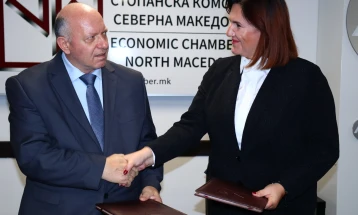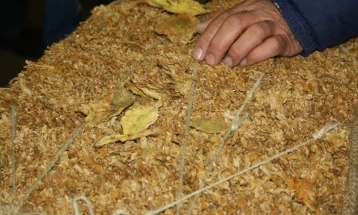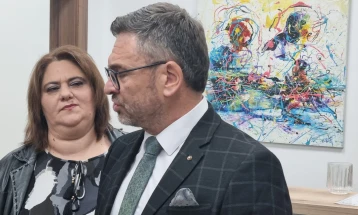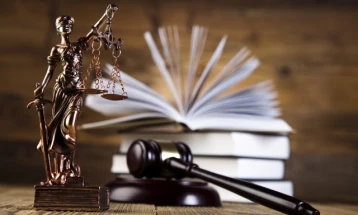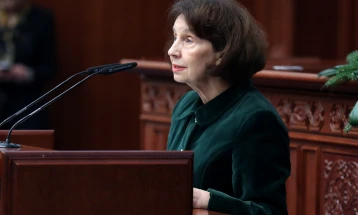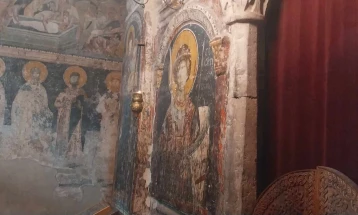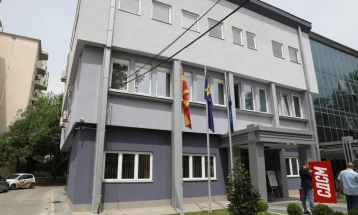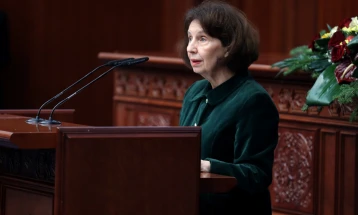Climate change challenge even more serious considering war in Ukraine and economic crisis, says EBRD chief
- Post By Ivan Kolekevski
- 12:30, 31 May, 2022
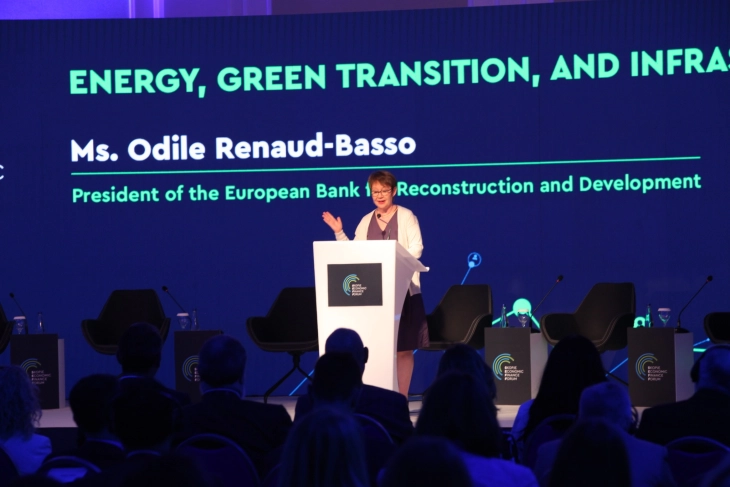
Skopje, 31 May 2022 (MIA) – Climate change is an enormous challenge and it will dramatically change the way in which we function, live and think. Meeting the Paris Agreement goals requires comprehensive electrification in order to achieve decarbonization, to stop the use of fossil fuels for electricity production and increase energy efficiency, European Bank for Reconstruction and Development (EBRD) President Odile Renaud-Basso told panel “Energy, Green Transition and Infrastructure” on the second day of the Skopje Economic Finance Forum (SEFF) on Tuesday.
“European countries have set quite ambitious goals on CO2 emissions and carbon neutrality by 2030, which impacts all aspects of our life. Therefore, we will need enormous investments and coordinated political action. Today’s climate change challenge is even more serious considering the war in Ukraine and the economic crisis. It is important to guarantee energy security in an economically viable way, but also to diversify energy sources,” said Renaud-Basso and added there is room to speed up investments in renewable energy sources.
She said national power grids have to be improved and the electricity market should be more open.
“Countries of the Western Balkans should fully focus on the trajectory of reducing carbon impact by engaging in public and private investments. This requires more renewable energy sources that will produce cheaper domestic energy. In this way, businesses will be more competitive and the region will be environmentally cleaner, whereas the environment will be protected,” noted Renaud-Basso.
According to her, the transport sector is a key priority for EBRD, a sector that is cleaner than land transport by 50-60 percent.
“Railways offer ecologically sustainable, innovative and safe means of transport. EBRD has already invested more than EUR 1 billion in railway projects across the Western Balkans. Now is the time to invest in infrastructure and bring regional countries closer, thus responding to the climate crisis,” said the EBRD chief.
Lilyana Pavlova, Vice-President of the European Investment Bank (EIB), said a real response to current challenges and uncertainties required joining financial institutions, other donors, governments, private and civil sector.
“We are on the path of sustainable recovery from the Covid-19 pandemic and facing the negative effects of the devastating war in Ukraine. We must cope with various challenges – economic, social, restrictions in food production, energy crisis, climate change. We should not miss the chance to use the crisis as an opportunity to speed up green transition, diversification of our economies, the energy sector, the transport sector,” said Pavlova.
“Reaching the goal of Europe being a zero-CO2 emission continent, we need to have new innovative technologies. The new economic environment resulting from the Russian invasion in Ukraine will lead to a lower economic growth in the EU and higher inflation rates. Therefore, we need efforts to find the best ways to plan in in a strategic and sustainable way,” said Pavlova.
If we improve the way we use energy resources, she added, we will help Europe remain competitive and innovative.
“We must focus our efforts on SMEs as the core of our economies,” said Pavlova.
Minister of Environment and Physical Planning Naser Nuredini said North Macedonia is one of the first countries in the region that has committed itself to reducing greenhouse gas emissions by 50 percent.
“This requires large investments and cooperation with the private sector and citizens. Coal is currently the biggest energy resource in the country but our commitment is to close thermal power plants by 2050. Air pollution is important in our country and a change of the way we heat our homes is the solution. The cheapest way to get energy is to spend less. Green transition envisages distribution of budget funds in order to find a way to improve the energy efficiency, which is key to achieving the goals by 2030 and 2050,” said Nuredini.
EU Ambassador David Geer said EU holds a key instrument for regional investments worth EUR 9 billion, leading to a greener Western Balkans.
Geer stressed the Union is financially supporting the country’s gas connection with Greece, Kosovo and Serbia, supporting investments for energy networking with Albania and Bulgaria, along with the options of turning mining power complex (REK) Bitola and thermal power plant (TEC) Oslomej into gas-powered plants.
